Table of Contents
Join Thousands of Hotels Thriving with roommaster
The transition to roommaster is straightforward and efficient. Our implementation team handles data migration including reservations, guest profiles, and historical information.
The hospitality industry is moving quickly toward technology that makes travel smarter and more personal. Smart hotel technology uses connected devices, artificial intelligence (AI), the internet of things (IoT), and automation to make stays easier for guests while helping hotels run operations more efficiently. It improves comfort, speeds up service, and allows properties to save on energy costs without cutting back on quality.
The importance of smart systems in hotels continues to grow because operators want better ways to run daily operations while delivering consistent service at every touchpoint. With global surveys showing nearly 78% of hoteliers plan to increase their tech investments by the end of 2025, properties that adopt smart systems now will gain a clear advantage in efficiency and boost guest satisfaction.
Smart hotel features work best when you connect them with the right property management system (PMS) tech. For example, the roommaster Concierge acts like a full-time hotel AI agent and delivers five-star service nonstop, answers questions, manages bookings, and assists hotel guests. Similarly, the roommaster Guest App connects directly with room locks, letting people skip keys altogether. Tools like the ampliphi RMS integrate with the roommaster PMS, helping hotels increase revenue, maximize profitability, and optimize pricing dynamically with automation and AI-driven insight.
This kind of technology shows how smart systems create smoother guest interactions and lighter workloads for hotel staff at the same time. In this article, you’ll find practical technologies that can help your hotel operate smarter in 2026.
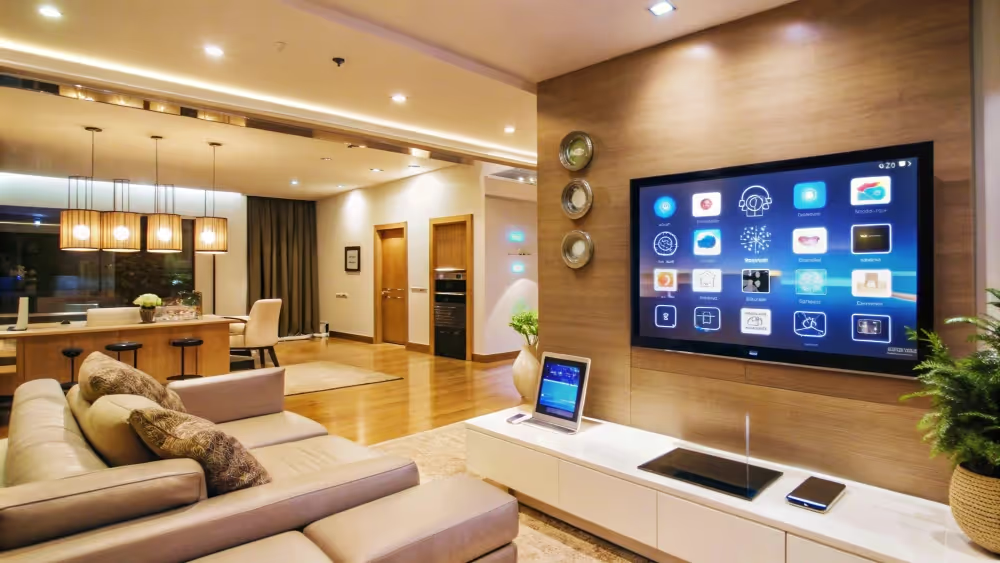
Smart hotel technology refers to connected devices, artificial intelligence, IoT, and automation systems that improve hotel tasks, save energy, and enhance the guest experience. These tools work in harmony to give staff a responsive setup where they handle tasks more smoothly while guests receive quicker, personalized attention at every moment. Smart hotel environments become even more powerful when supported by hospitality management software that unifies guest data, automation tools, and operational workflows in one connected platform.
Some of the key components of smart hotel tech include:
When voice control, mobile keys, and self‑check‑in touchpoints connect, work happens faster, guests feel catered to, and delays disappear immediately. AI concierges field questions, make bookings, and suggest local activities around the clock while energy systems detect empty rooms and adjust settings automatically to cut waste and cost.
Even housekeeping benefits because real‑time occupancy data and smart alerts help staff clean rooms quickly without waking guests. Every piece of smart tech brings clear benefits on its own, and when they come together, they create an entire experience that runs smoothly, consistently feels modern, and makes staying more pleasant.
With modern PMS platforms like roommaster, front-desk agents can view everything from housekeeping updates to guest messages in one dashboard, cutting down time and confusion. When used well, PMS tech gives your team real control over the full guest journey, from first click to final checkout. The real advantages of PMS in a hotel come through when systems talk to each other, helping your team respond quickly, offer better service, and keep everything running without constant manual updates.
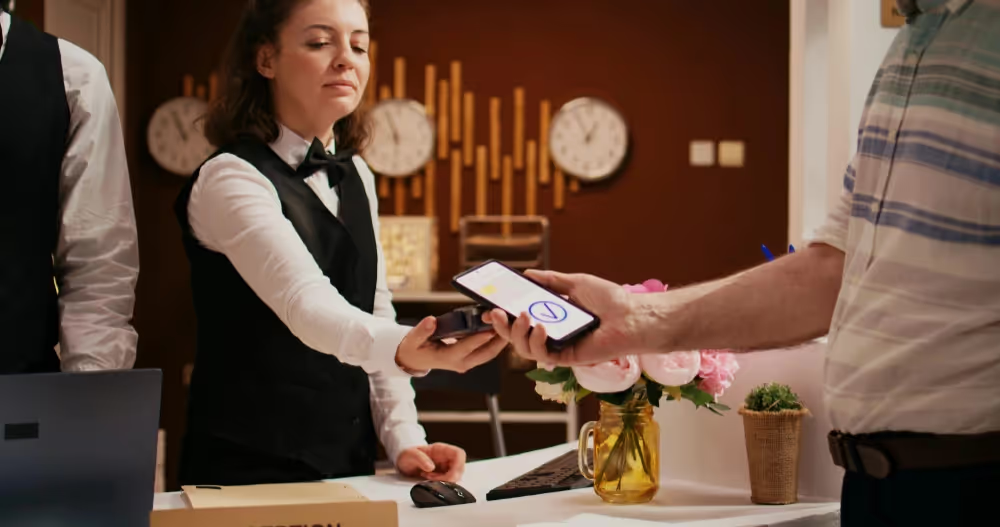
When hotels adopt smart hotel technology, they not only improve guest satisfaction but also give staff the right systems to deliver service faster and with fewer mistakes. In fact, recent industry data shows that modern hotels can cut energy costs by almost forty percent 40% and water bills by 20% when they use smart controls such as LED lighting and automated systems to manage energy usage.
With the right tools, hotels create smoother operations and stronger guest loyalty at the same time:
Smart technology gives guests direct control of their rooms through mobile apps, connected devices, or voice commands, making daily adjustments easier and more enjoyable. roommaster Concierge adds another level of service by handling every call at any time of day, speaking multiple languages fluently, and turning inquiries into confirmed bookings without delays.
Because it answers routine questions automatically and passes complex requests to staff with complete context, it allows teams to focus on meaningful face-to-face service while still giving every guest fast and accurate support.
{{concierge-one}}
Over 80 % of hospitality operators are integrating automated systems to streamline operations, reduce human error, and optimize performance. Automation in hotels cuts down errors by managing check-in, check-out, housekeeping schedules, and even maintenance requests in real time.
The roommaster Guest App improves the process further because guests can check in or check out directly on their phone, request services instantly, and even use mobile keys to enter their rooms. Staff also benefit from real-time analytics and notifications that show occupancy status, guest requests, and task updates, allowing them to respond faster and improve overall service quality.
{{guest-app}}
Hotels reduce operating costs when they use connected thermostats, automated lighting, and other smart devices that track and adjust usage patterns automatically. These systems lower energy bills while still maintaining comfortable conditions for every guest throughout their stay.
In fact, implementation of wireless IoT energy management systems in hotels has resulted in typical energy and operational savings ranging from 15 % to 35 %, with payback periods of 18 months or less. Smart hotel systems become even more effective when connected with a hotel channel manager that keeps availability and rates synced automatically across all online travel platforms.
Hotels that want to stay competitive must adopt technology that meets rising guest expectations and supports smooth daily operations. These tools make travel more convenient while giving staff better ways to manage tasks that often overwhelm traditional hotel teams.
By adopting smart hotel technology, properties create a guest journey that feels modern, personalized, and efficient at every touchpoint.
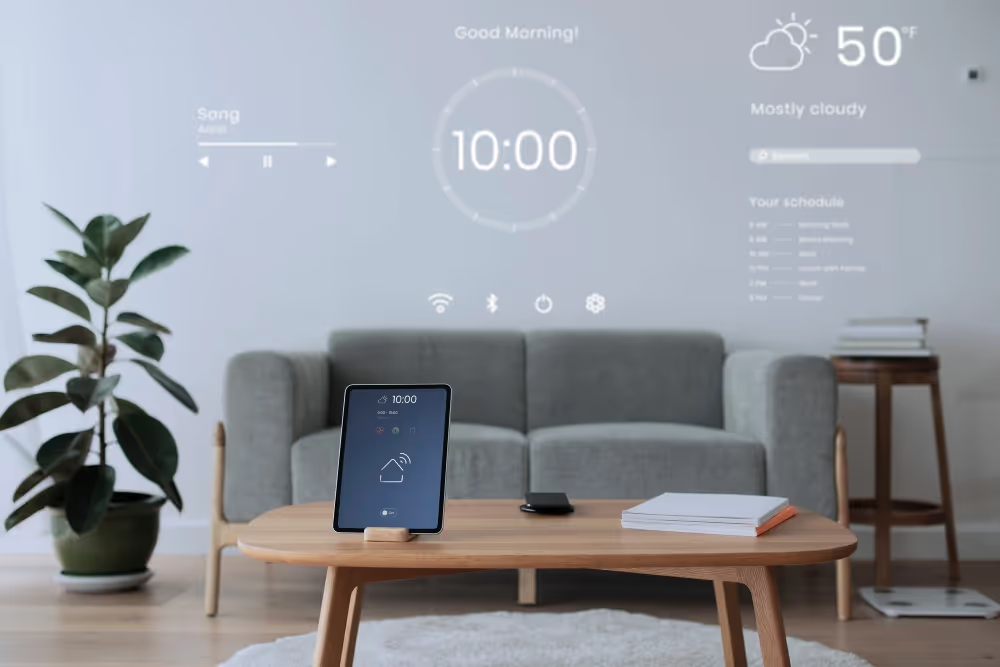
Guests enjoy smart hotel rooms that feel tailored to them when lighting, curtains, temperature, and entertainment adjust automatically to their preferences. When these features connect with mobile apps, guests can manage their room environment without waiting for staff assistance.
Smart thermostats and voice assistants like Alexa or Google Assistant help guests control comfort with simple commands that save time. Hotels gain lower energy bills because devices monitor usage and cut waste when rooms remain empty for long periods.
For example, Hilton San Diego Bayfront reduced gas usage by 13.6 % and electricity use by 9.5 % per square foot within a year of using IoT energy monitoring systems, saving over $200,000. Similarly, InterContinental Hotels Group has achieved up to 25 % energy reductions per square meter using smart building automation.
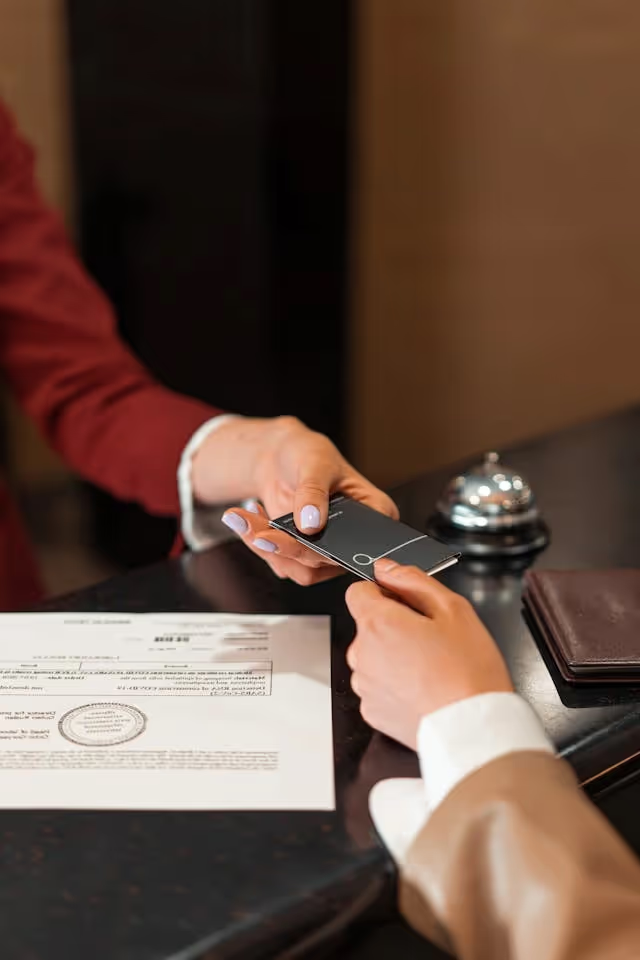
No traveler likes waiting in long front desk lines when they could check in instantly on their phone. Kiosks and mobile apps let guests handle arrivals, departures, and even key access on their own schedule with minimal friction.
With the roommaster Guest App, guests use digital keys to enter rooms securely without stopping at reception. Hotels that use these systems shorten queues, reduce stress for staff, and improve satisfaction for guests arriving late or leaving early. A hotel booking engine also plays a key role by letting guests reserve rooms instantly through your website while passing all reservation details directly into the PMS.
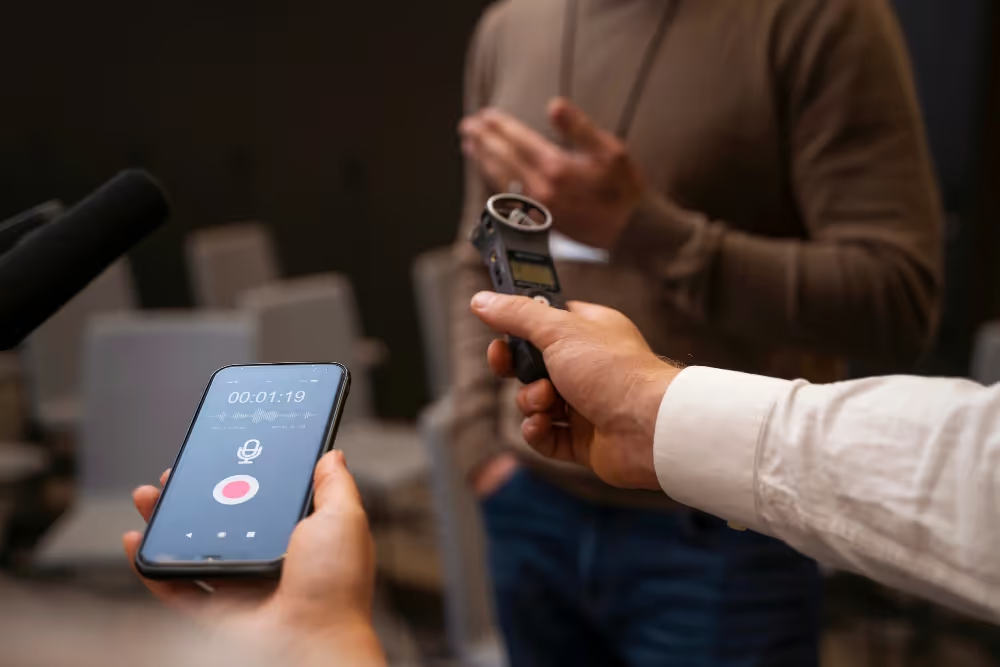
Hotels lose bookings when staff miss calls during busy hours, late nights, or holiday weekends. roommaster Concierge answers every call instantly, speaks multiple languages fluently, and provides accurate information that builds guest trust.
As a result, guests get 24/7 support for bookings, questions, and recommendations, while hotels convert late‑night calls into reservations that would otherwise disappear. Staff feel less pressure because the AI handles routine tasks and passes only complex issues to human employees with full context.
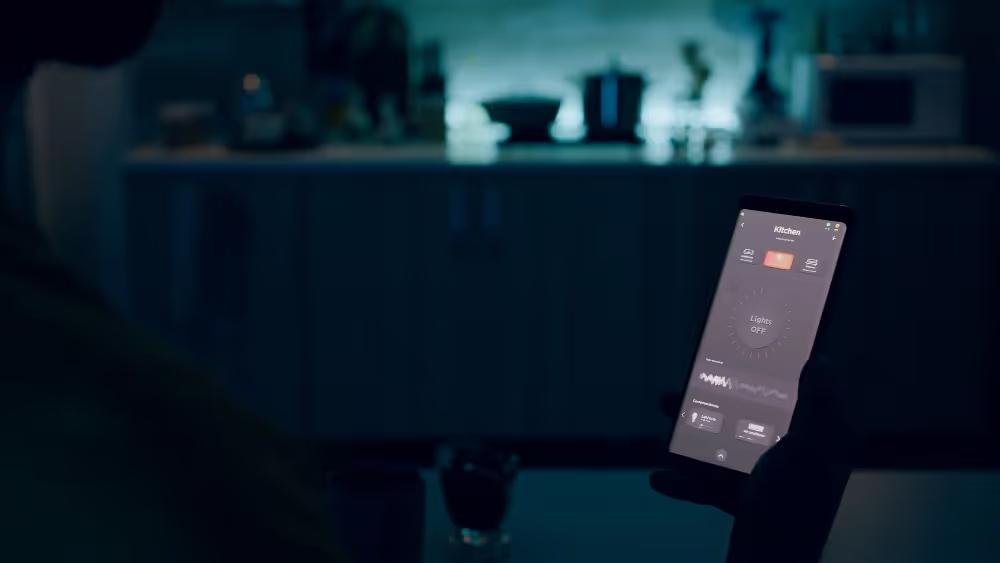
Hotels that install smart thermostats, motion sensors, and lighting controls give guests rooms that stay comfortable without wasting energy. These systems automatically adjust temperature and lighting based on occupancy or time of day, so rooms aren’t cooled, heated, or lit unnecessarily. Guests don’t have to fumble with controls, as rooms brighten in the morning, dim at night, and cool down when needed, all without manual input.
Since heating and cooling account for up to 53 % of total energy use in many hotels, smart HVAC controls offer one of the fastest ways to reduce costs. In fact, automated climate systems can cut HVAC energy expenses by up to 30 %, and adding sensors that detect open doors or windows can save an additional 20 %, according to data published by Hospitality Net.
These tools also collect real-time environmental data like humidity and air pressure, giving hotel engineers a clear view of system performance. This allows maintenance teams to catch issues early, track HVAC efficiency, and improve guest room comfort.
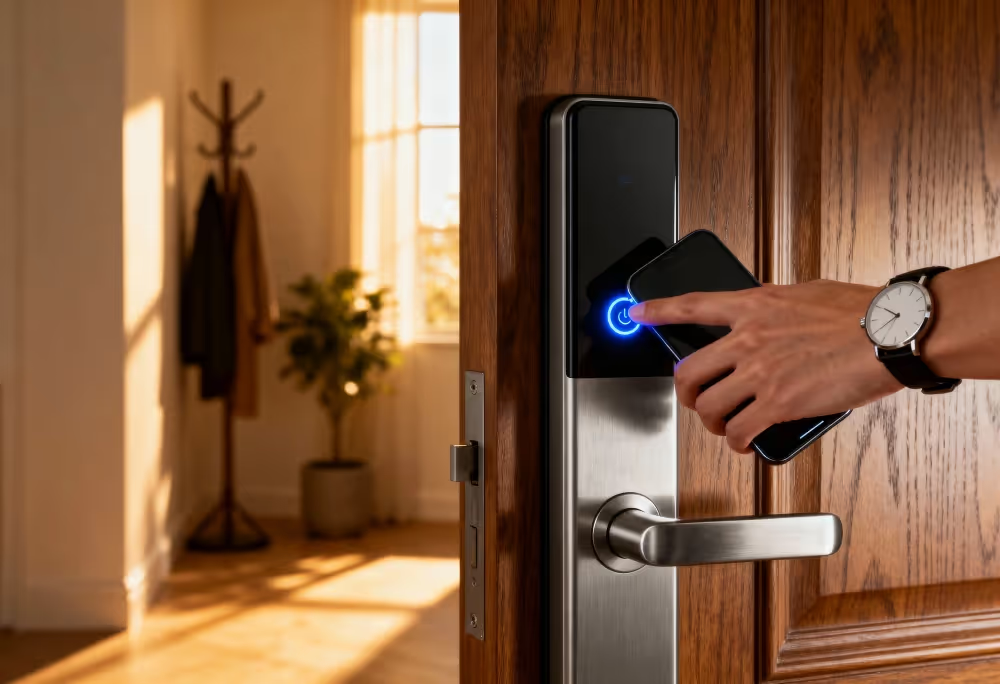
Travelers value security and convenience when entering their rooms with a simple phone tap or key card swipe. Bluetooth‑enabled locks and mobile‑based systems eliminate the need for physical keys that guests often misplace or demagnetize.
The roommaster Guest App connects directly to major lock providers, allowing guests to unlock their rooms directly from their phones. This mobile key feature not only enhances the guest experience but also reduces the number of front desk visits for lost or malfunctioning keys.
By adopting the roommaster Guest App, hotels reduce front desk pressure, improve on-site security, and offer guests a simple, secure, and modern way to access their rooms with just a tap.
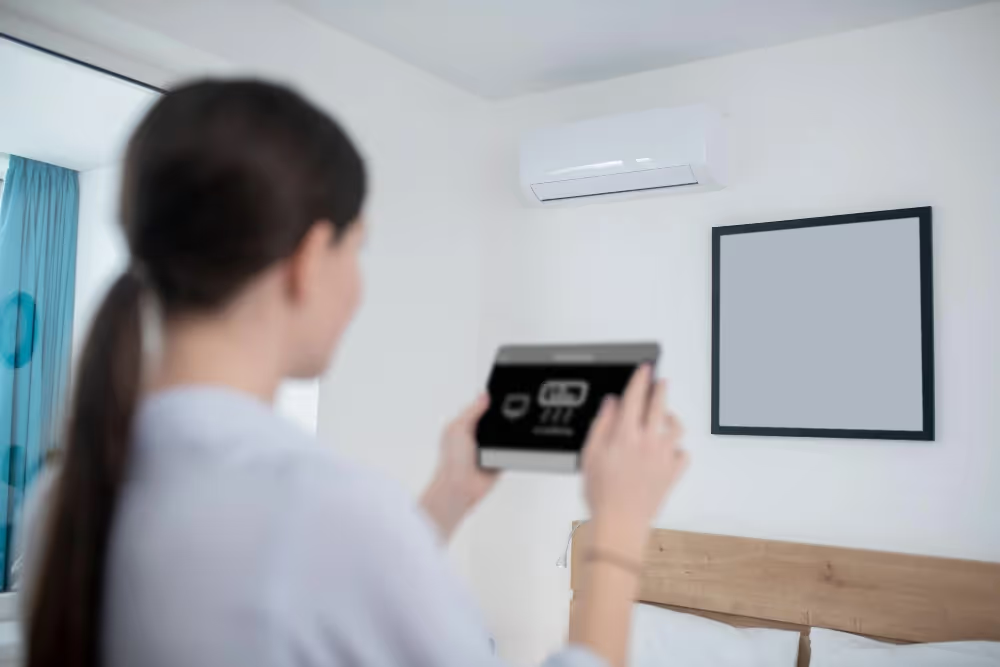
Hotels spend heavily on energy, but connected systems reduce costs by automatically adjusting HVAC, lighting, and power usage. EMS tracks consumption throughout the property and optimizes resources based on occupancy, weather, and peak demand hours. Guests still enjoy a comfortable stay while the hotel cuts waste from lights or air conditioning running unnecessarily.
Smart energy systems also support sustainability goals that attract environmentally conscious travelers who prefer staying at responsible properties. Across the industry, hotels implementing IoT solutions report up to 30 % energy cost savings. Some systems achieve up to 40 % waste reduction by adjusting settings based on occupancy and external factors, aided by predictive analytics dashboards.
These operational efficiencies become even more powerful when paired with the roommaster revenue optimization system, which uses demand forecasts to inform both pricing and resource planning. The system empowers independent hotels with intelligent, rule-based pricing that adjusts automatically based on occupancy thresholds, booking pace, lead time, and seasonal demand. The system eliminates the need for constant manual updates by running 24/7 in the background.
As a result, hotels maintain optimal occupancy and revenue without compromising the guest experience, often achieving a 15–20% increase in RevPAR within the first year.
{{pms-one}}
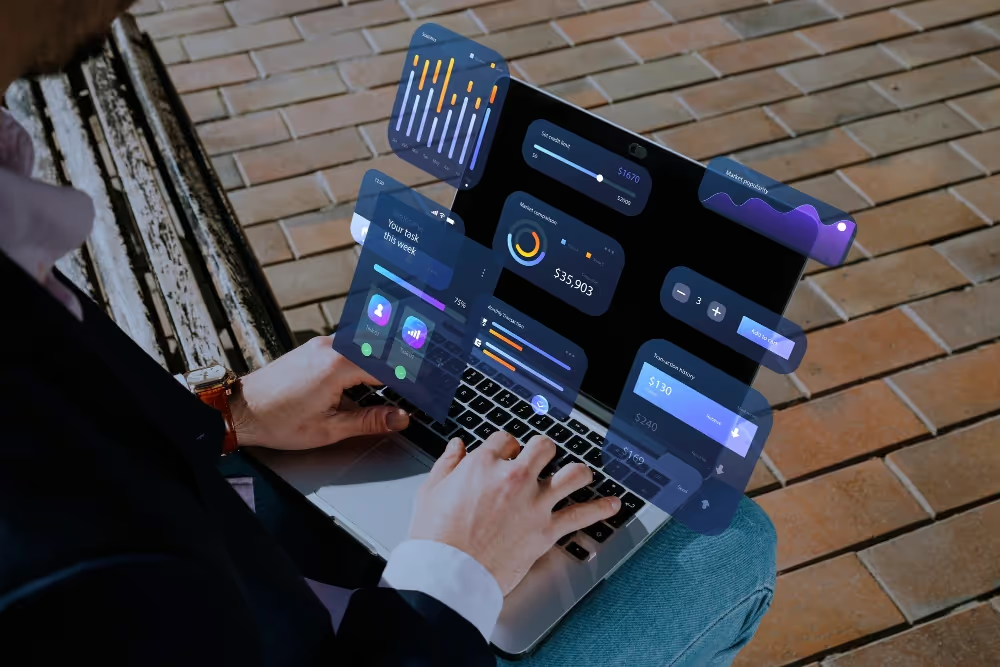
Hotel performance improves dramatically when decisions are based on data. roommaster’s integration with the ampliphi RMS brings powerful AI-driven intelligence to independent properties, enabling real-time, automated decision-making across pricing and forecasting.
While roommaster’s built-in revenue optimization already delivers rule-based dynamic pricing, ampliphi takes it a step further with:
Together, roommaster and ampliphi empower hotels to make intelligent, fast, and profitable decisions without adding complexity or overhead.

From mobile check-in to AI-powered support, smart hotel technology helps teams work faster while keeping guests comfortable and satisfied. Given below are some of the benefits of implementing smart hotel technology:
Introducing high-tech systems often feels exciting at first, but hotels quickly face real pressures around budgets, staff training, and operational change that demand careful planning.
.avif)
Hotels that start using new systems usually spend a lot at first on equipment, software, setup, and staff training. Between 2023 and 2024, U.S. hotels increased their tech spending by 4.6%, which grew faster than other common hotel costs.
Even though the upfront cost feels high, many hotels get that money back over time through lower energy bills, happier guests, and smoother daily work for their staff.

Connecting new tools with older systems can become an obstacle, especially when the property lacks a modern PMS.
roommaster’s cloud-based solution integrates smoothly with existing hotel systems because it supports real-time data sharing, offers more than 270 built-in reports, and links with POS, CRM, revenue, and guest tools through over hundreds of open APIs. This unified platform helps properties upgrade without rebuilding multiple workflows from scratch.

Collecting more guest data brings higher risks related to privacy and security. The average cost of a hospitality data breach reached $4.4 million in 2025, and executives ranked cybersecurity as their top concern in 2023 and 2024.
Hotels must comply with global regulations like GDPR, as well as local laws such as the California Consumer Privacy Act (CCPA) in the U.S. or India’s Digital Personal Data Protection Act (DPDPA). Investing in strong protections such as encryption, access controls, and vendor oversight is essential to preserve guest trust and avoid costly penalties.
Bringing smart hotel technology into your property helps deliver guest experiences that feel personal and effortless while keeping your operations efficient and cost-effective. These smart tools reduce energy waste, speed up services, and give your staff time to focus on the human side of hospitality rather than manual tasks.
roommaster Concierge shows how AI can upgrade front desk service with round‑the‑clock guest assistance and multilingual support that never misses a beat.
Want to see this in action at your hotel? Book a demo to explore how roommaster can elevate your hotel industry game and make rooms smarter and more responsive.
A smart hotel uses connected tools, automated systems, and artificial intelligence to make stays smoother for guests and easier for staff. These tools help manage things like check-in, room temperature, and service requests without needing constant staff input. When hotels adopt these systems, they move faster, reduce waste, and give guests more control during their stay.
Guests enjoy shorter wait times, more control over their stay, and faster service without needing to call the front desk. Tools like mobile check-in, voice assistants, and smart thermostats help create a smoother, more comfortable experience. Smart tech removes common pain points and gives guests more freedom during their stay.
Smart systems reduce repetitive tasks for staff, improve energy use, and provide real-time updates on guest needs. Hotel teams get better visibility into room status, room service requests, and performance across the property. This allows them to act faster, make informed decisions, and focus on higher-value interactions.
Smart rooms often include automated lighting, temperature control, voice-activated assistants, and mobile keys for easy access. roommaster PMS offers these features that adjust automatically based on guest preferences or room occupancy to save time and energy. Guests can manage many of these tools directly through their phone or voice commands.
Hotels now use AI concierges, mobile keys, and live reporting to serve guests faster with fewer delays. Contactless check-in, automated messages, and digital service requests are becoming standard in tech-forward properties. AI hotel agents like roommaster Concierge work around the clock, answer questions in multiple languages, and convert guest calls into direct bookings.
{{cta-strip}}
.avif)
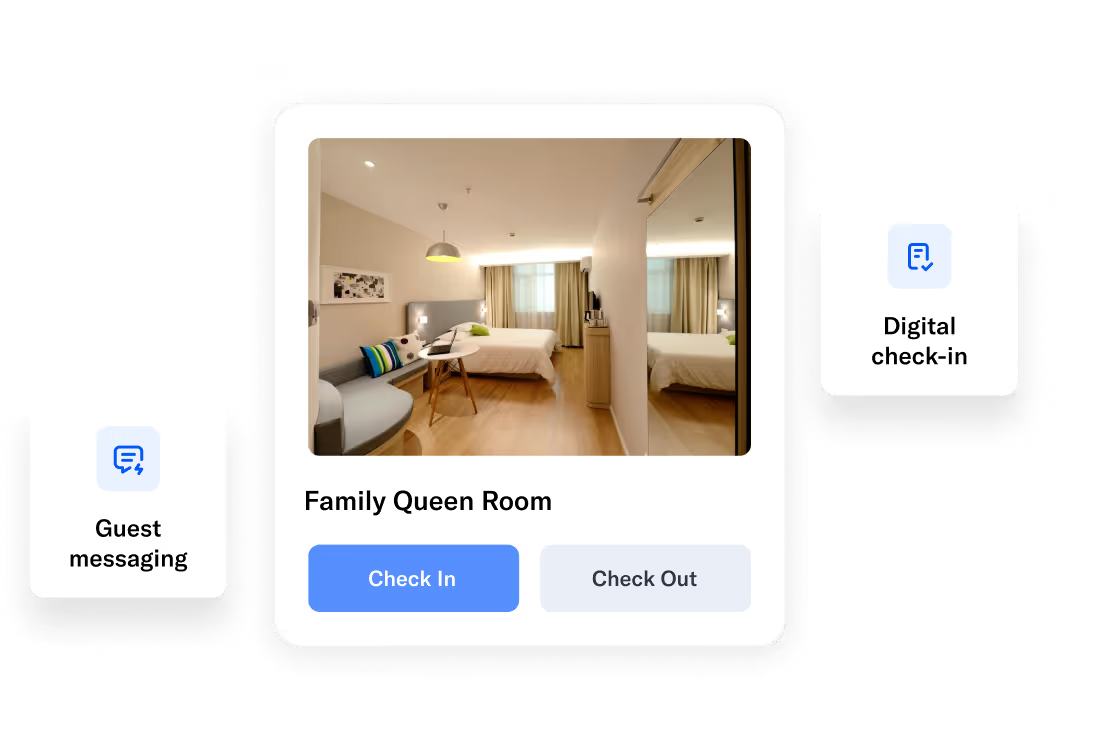
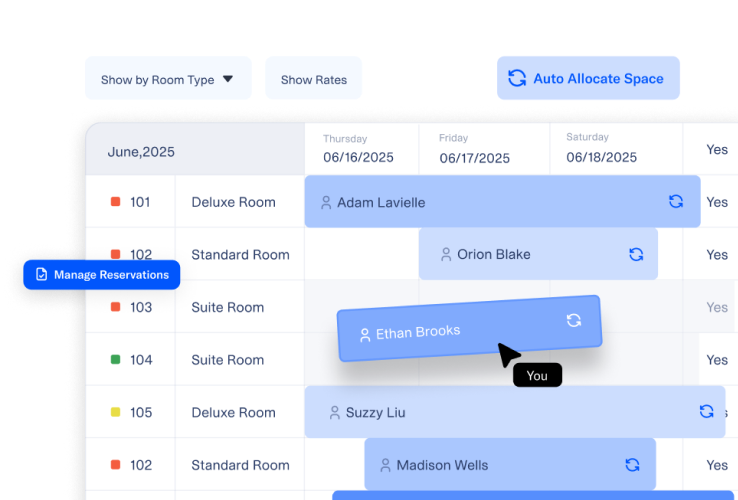
The transition to roommaster is straightforward and efficient. Our implementation team handles data migration including reservations, guest profiles, and historical information.
See how roommaster's unified platform can work for your property. Our team will walk you through features tailored to your specific needs and operations.